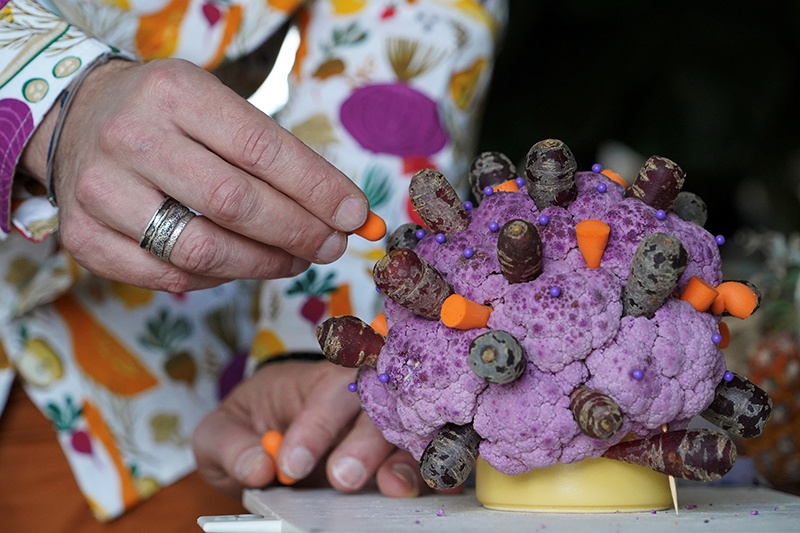
What do a match-studded turnip, celeriac embedded with coffee capsules and a kiwano melon decorated with lollipops and pins have in common? All are the brainchild of a British man trying to keep busy during lockdown, reproducing the shape of the novel coronavirus from everyday objects. "The idea started a bit randomly," Lorenzo Saa told AFP at his flat in north London. "I have a cactus at the house, one of these beautiful round ones, and it sat there and I looked at it and it made me think of all these images that we were seeing of COVIDs. "And so I had some felt balls, I put them on the cactus, and it was like, 'Oh my God, this is COVID-19.'"
Supporting local communities
Saa, who works for an investment consulting firm, spends four hours a day on his increasingly inventive creations before posting them to a dedicated Instagram account, covid19replicas. Most of his creations start with a round fruit or vegetable, to which he adds everyday objects to depict the different-sized stalks of the virus. So far he has used items including candles, radishes, buttons, flowers, cloves, dried pasta and incense sticks.
With the exception of the incense sticks, Saa has made it a point of principle to try to eat all of his creations, and views it as a way of staying healthy and supporting the community. "Fruit and vegetables... are much better for the environment, plus they're better for your health," he said. "It's health, it's environment, it's local communities that you actually support by shopping there and not shopping at chains."
'Divert the absence'
Britain entered coronavirus lockdown in late March as the virus took hold. More than 33,000 people have now died -- the second-highest toll in the world. Restrictions were eased slightly this week in England, with indications of a downward trend in cases, hospital admissions and deaths. Saa said it had been a struggle to keep coming up with new ideas as the days passed. An iced version and another with light bulbs are in the pipeline. But he said the project has kept him occupied. "I think having a project is key in mental health, and I think this has helped my mental health," he added. "I'm a very social person, so I needed something to help me divert the absence of something that was important for me, which was the social connection to people."—AFP
.jpg)
